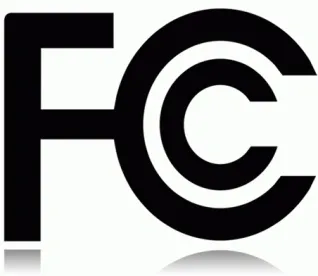FCC Draft Small Cell Order
The FCC on Wednesday released a DRAFT Order to be considered at its September 26 Open Meeting, that would set nationwide standards under Sections 332(c)(7) and 253 of the Communications Act for the installation of “Small Wireless Facilities” (small cells) in public rights of way (ROW) and the collocation of small cells on state and municipal streetlight poles, utility poles and other facilities in the ROW. The DRAFT decision would limit what state and local governments could charge for small cell applications and annual rent, including for both the small cell antenna sites and the underground fiber connecting the sites. The DRAFT order would also establish “shot clocks” for application review.
FCC Draft 911 NPRM
Last week, the Commission released a DRAFT Notice of Proposed Rulemaking regarding Kari’s Law and RAY BAUM’S Act, both of which were enacted earlier this year. Kari’s Law requires Multi-Line Telephone Systems (MLTS) to enable users to dial 911 directly, without having to dial one or more initial digits, such as “9 + 9 1 1,” to reach an outside line. The NPRM proposes rules to clarify the statutory requirement. A provision of RAY BAUM’S Act requires the Commission to consider adopting rules to ensure that when a user calls 911, a “dispatchable location” is conveyed, regardless of the technology. The NPRM proposes to apply dispatchable location requirements to MLTS, fixed telephone service, interconnected Voice over Internet Protocol (VoIP) services, and Telecommunications Relay Service (TRS). The NPRM seeks comment on whether the rules should be applied to other 911-capable services. Finally, the NPRM proposes to consolidate all 911 rules into a single rule part.
Hurricane Florence
We expect to assist utility and other critical infrastructure company field personnel who might need emergency authority to operate on new or modified wireless radio frequencies during preparation or restoration efforts associated with Hurricane Florence. The Commission has been responsive to our requests for Special Temporary Authority (STA) for Land Mobile and Microwave operations in the aftermath of previous damaging hurricanes or other natural disasters.
Senators Call on Carriers to Guarantee Service to First Responders
Senators Dianne Feinstein (D-CA) and Kamala Harris (D-CA) sent letters to the FCC, Verizon, AT&T, Sprint, and T-Mobile, calling on them to guarantee service to first responders during emergencies. The letters are a response to Verizon restricting data speeds for the Santa Clara Fire Department (SCFD) during the Mendocino Complex Fire. The SCFD had an unlimited data plan with Verizon. The Senators have asked the companies to be transparent with public safety customers about the terms of their service plans. The Senators also asked Chairman Pai to open an investigation into whether Verizon violated an FCC rule requiring ISPs to publicly disclose certain information about their services.
CBRS Alliance Announces Successful Interoperability Test
On September 5, the CBRS Alliance announced the results of its inaugural OnGo Interoperability Test Event. CBRS Alliance member companies, including five Shared Access Spectrum (SAS) Administrators participated in the event. The SAS Administrators fostered more than 50 successful interactions. The CBRS Alliance claims that the results prove it is making great progress towards the commercialization and adoption of its OnGo technology.
FirstNet Leadership Changes
Last week, FirstNet announced two major leadership changes. The Secretary of Commerce reappointed Edward Horowitz to the Board and named him Chair of the Board for a two-year term. Horowitz succeeds Sue Swenson, who has served as Chair for the past four years. CEO Mike Poth will be leaving for a position in the private sector. The Board will coordinate with the Department of Commerce to select a new CEO, and to name an Acting CEO for the time being.







 />i
/>i

